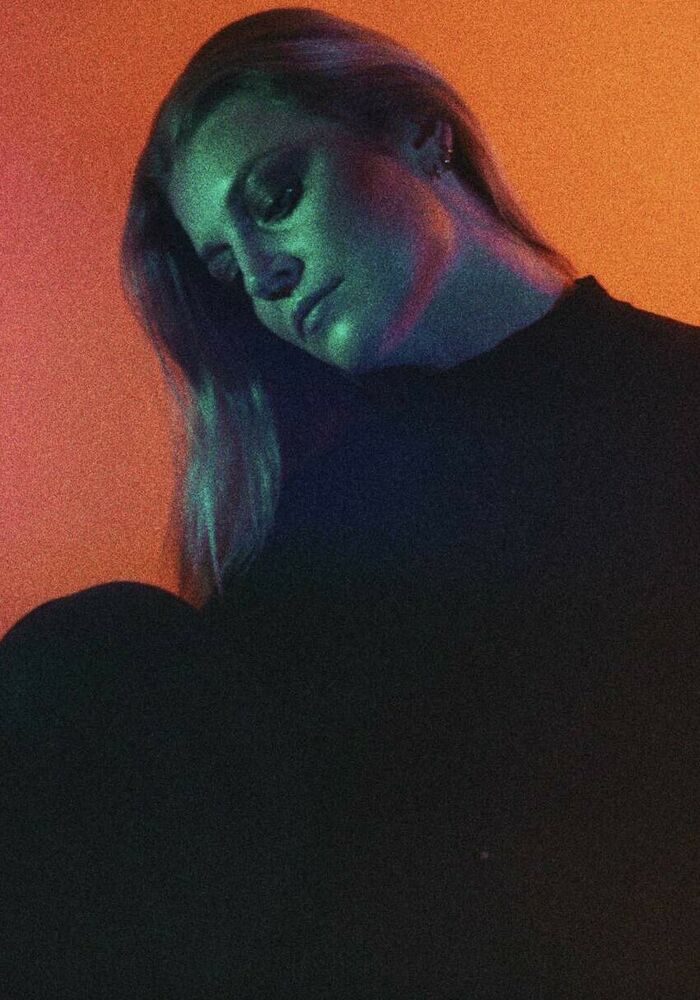Emily Underhill, aka Tusks, opens up to Headliner about the making of her new album Gold, the contrasting and conflicting circumstances that informed its creation, and how she has learned to harness the cathartic power of songwriting…
Tucked away in a corner booth of London’s Soho Theatre Café, Headliner awaits the arrival of Emily Underhill, perhaps better known by her artist moniker Tusks, who is joining us for what will prove to be a far-reaching, in-depth chat about the unique circumstances that spawned her new album Gold. Released on April 12, Gold is a breath-taking piece of work in its own right, free from the context in which it is couched. But given the chaotic personal and professional conditions from which it was born, it is an achievement rendered all the more remarkable.
Her third album to date, it is a record that ebbs and flows with moments of synth heavy bombast and minimalist beats, building on its predecessors (2017’s Dissolve and 2019’s Avalanche) with a greater sense of musical cohesion and sonic complexity. The story behind its creation is a compelling one, fuelled by a series of contrasting and contradicting events that set its release back several years.
“It was a funny time,” Underhill begins with a half laugh, half sigh, as she takes her seat opposite us in the booth. An immediately engaging presence, she is willing to talk at length about a range of subjects, from the tumultuous time surrounding the album, to politics, what she’s been listening to of late - namely the new Marika Hackman album Big Sigh - watching Goggle Box, and more.
“It was early 2020,” she continues, explaining the origins of Gold. “I was writing loads of music and thought I had an album that’d be ready by the end of 2020. But obviously the pandemic happened, and it went on for so long and there was such chaos in the music industry, so I just kept rewriting and rewriting and rewriting. By the time I actually started writing the songs that are now on the album, I guess it would have been the start of 2022.
“I say it was a funny time because I was in a situation where I was locked down while living in a warehouse with 12 other people in the middle of Manor House, right next to the main road [laughs]. I was in lockdown and surrounded by people, never alone. So when things started opening up and you could move, I went down to this little remote part of Devon where I didn't see anyone for four days at a time and did a lot of the writing there. I’d be back and forth between there and London, so a lot of the album was written between being in these hectic social situations where you either can't escape or you’re completely alone.”





